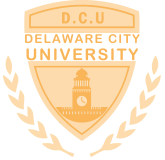Offered via Distance Learning by Delaware City University
This professional training program provides participants with a comprehensive understanding of the ISO 9001:2015 Quality Management System (QMS) standard. Designed for individuals aiming to implement, manage, or audit quality systems, the course emphasizes key principles such as the process approach, risk-based thinking, customer focus, and continuous improvement.
Key Learning Outcomes:
Understand the structure, terminology, and core requirements of ISO 9001:2015.
Learn how to design and implement a quality management system aligned with international standards.
Acquire practical knowledge of internal auditing processes and compliance techniques.
Develop the ability to support organizational quality strategies and drive performance improvements.
Target Audience: This program is ideal for quality assurance professionals, internal auditors, compliance officers, and personnel involved in operations, manufacturing, education, or service delivery.
Delivery Format: The program is delivered entirely via distance learning through Delaware City University’s virtual learning platform. The flexible format allows participants to study at their own pace while engaging in interactive modules, real-world case studies, and practical assessments. A certificate of completion is awarded upon successful fulfillment of course requirements. Continuing Education Units (CEUs) may also be available.
Career Relevance: ISO 9001:2015 certification is recognized globally and adds value across diverse industries. Graduates of this program gain in-demand skills that enhance professional credibility and support career advancement in quality management and organizational excellence.
Offered via Distance Learning by Delaware City University
This specialized training program equips participants with in-depth knowledge of ISO 14001:2015, the international standard for Environmental Management Systems (EMS). The course is designed to help professionals understand how to develop, implement, and maintain an effective EMS that supports sustainability, legal compliance, and environmental performance.
Key Learning Outcomes:
Understand the framework and requirements of ISO 14001:2015.
Learn how to identify and manage environmental aspects and impacts.
Develop skills to establish environmental policies and objectives in line with compliance obligations.
Gain practical insights into internal auditing, continual improvement, and sustainable resource management.
Target Audience:
Ideal for environmental managers, sustainability officers, compliance professionals, and individuals involved in environmental planning, operations, and regulatory affairs.
Delivery Format:
This program is offered through distance learning at Delaware City University, providing participants with a flexible, self-paced experience. Learning modules include case studies, applied exercises, and assessments, all delivered through a user-friendly online platform. A certificate of completion is granted upon successful course completion, with the possibility of earning Continuing Education Units (CEUs).
Career Relevance:
With increasing global focus on sustainability and environmental responsibility, ISO 14001:2015 certification provides a competitive edge in various industries including manufacturing, construction, energy, and public services. This training prepares professionals to lead environmental initiatives and contribute to corporate social responsibility goals.
This comprehensive training program provides a thorough understanding of ISO 45001:2018, the international standard for Occupational Health and Safety Management Systems (OHSMS). The course is designed to help professionals create safer workplaces by implementing systems that proactively manage health and safety risks.
Key Learning Outcomes:
Understand the structure and core requirements of ISO 45001:2018.
Learn how to identify workplace hazards and assess occupational risks effectively.
Gain the skills to develop, implement, and monitor an occupational health and safety management system.
Explore strategies for continuous improvement, legal compliance, and employee well-being.
Target Audience:
This program is ideal for:
Health and safety officers
Compliance professionals
HR managers
Operations supervisors
Anyone responsible for workplace safety and risk management
Delivery Format:
The program is delivered entirely via distance learning through Delaware City University. It offers a flexible, self-paced format designed for working professionals. The curriculum includes theoretical modules, real-world case studies, self-assessments, and interactive tools. Upon successful completion, participants will receive a certificate of completion and may qualify for Continuing Education Units (CEUs).
Career Relevance:
As organizations increasingly prioritize safe and healthy working environments, ISO 45001:2018 certification has become a valuable credential. Graduates of this program will be equipped to lead occupational health and safety initiatives, support regulatory compliance, and foster a strong safety culture within their organizations.
This specialized training program introduces participants to ISO 21001:2018, the international standard designed for educational organizations to enhance their management systems and improve learning outcomes. The course equips education professionals with the tools to establish systems that support effective leadership, inclusive learning environments, and continuous improvement in educational services.
Key Learning Outcomes:
Understand the structure, principles, and requirements of ISO 21001:2018.
Learn how to implement a management system tailored to the unique needs of educational institutions.
Explore ways to support learner satisfaction, stakeholder engagement, and educational quality.
Develop strategies for continual improvement and evidence-based decision-making in educational settings.
Target Audience:
This program is ideal for:
School and university administrators
Quality assurance officers in education
Educational consultants and auditors
Policy makers and education sector leaders
Delivery Format:
The training is delivered fully online through Delaware City University’s distance learning platform. Participants benefit from a flexible, self-paced structure, supported by practical examples, case studies, and interactive materials. A certificate of completion is awarded upon successful participation, and Continuing Education Units (CEUs) may be available.
Career Relevance:
ISO 21001:2018 is increasingly recognized as a framework for enhancing the quality and effectiveness of education systems. Completing this training supports career growth for professionals aiming to lead improvements in educational delivery, governance, and learner satisfaction.
This training program offers a comprehensive introduction to Total Quality Management (TQM), a strategic approach to long-term success through customer satisfaction, continuous improvement, and organizational involvement. The course is designed to help professionals develop and apply quality management principles across all functions of an organization.
Key Learning Outcomes:
Understand the core concepts and principles of Total Quality Management.
Learn how to apply TQM tools and techniques for process improvement.
Explore methods for fostering a culture of quality and employee engagement.
Gain insights into customer-focused strategies and performance measurement.
Target Audience:
This program is well-suited for:
Quality assurance professionals
Operations and production managers
Business analysts and process improvement specialists
Organizational leaders aiming to implement quality-driven strategies
Delivery Format:
Delivered through Delaware City University’s online learning platform, this distance learning program offers flexible, self-paced access to lectures, case studies, practical exercises, and assessments. Participants receive a certificate of completion and may be eligible for Continuing Education Units (CEUs).
Career Relevance:
TQM is widely adopted across industries including manufacturing, healthcare, education, and services. Mastering its principles equips professionals with the ability to drive operational excellence, enhance customer satisfaction, and lead quality initiatives that contribute to organizational success.
This advanced training program provides participants with the knowledge and skills required to apply Six Sigma methodologies at both the Green Belt and Black Belt levels. Six Sigma is a data-driven, results-oriented approach to process improvement that seeks to reduce variation, eliminate defects, and improve overall quality and performance.
Key Learning Outcomes:
Understand the DMAIC (Define, Measure, Analyze, Improve, Control) framework and its application in real-world settings.
Develop proficiency in statistical tools and techniques used in quality and process analysis.
Gain leadership skills necessary to manage Six Sigma projects and teams.
Learn how to identify root causes, implement sustainable improvements, and measure performance outcomes.
Target Audience:
This program is ideal for:
Quality and process improvement professionals
Engineers and project managers
Business analysts and operations leaders
Professionals seeking Six Sigma certification for career advancement
Delivery Format:
The course is delivered entirely through Delaware City University’s flexible distance learning platform. Participants can study at their own pace through interactive modules, real-world project simulations, and assessments. Successful candidates will receive certification at the Green Belt or Black Belt level, depending on the program track selected, along with eligibility for Continuing Education Units (CEUs).
Career Relevance:
Six Sigma certification is highly valued across sectors including manufacturing, finance, healthcare, logistics, and service industries. Green and Black Belt credentials validate an individual’s ability to lead performance improvement initiatives, enhance operational efficiency, and deliver measurable business results.
This specialized training program is designed to equip professionals with the skills and knowledge required to conduct effective internal audits across various ISO management systems, including ISO 9001, ISO 14001, ISO 45001, and others. The course emphasizes audit planning, execution, reporting, and follow-up in accordance with ISO 19011 guidelines.
Key Learning Outcomes:
Understand the principles and purpose of internal auditing within ISO management systems.
Learn how to plan and conduct internal audits based on ISO 19011 standards.
Develop skills in audit techniques, evidence collection, and nonconformity reporting.
Enhance the ability to evaluate compliance, identify risks, and support continuous improvement.
Target Audience:
This program is ideal for:
Quality, environmental, and safety managers
Internal auditors and compliance professionals
ISO implementation team members
Professionals preparing for external certification or surveillance audits
Delivery Format:
Delivered entirely through Delaware City University’s online platform, this flexible distance learning course includes interactive learning modules, real-life audit scenarios, practical exercises, and assessments. Participants receive a certificate of completion and may be eligible for Continuing Education Units (CEUs).
Career Relevance:
Internal auditing is a vital function for organizations seeking ISO certification and ongoing compliance. This training prepares professionals to perform value-added audits, support risk management, and drive system improvements—skills that are in high demand across all sectors.
This focused training program explores the essential role of risk management within quality management systems. It is designed to help professionals identify, assess, and control risks that could impact product or service quality, customer satisfaction, and organizational performance. The program aligns with the principles of ISO 9001:2015 and other related standards where risk-based thinking is emphasized.
Key Learning Outcomes:
Understand the fundamentals of risk management and its integration into quality systems.
Learn to identify potential quality risks and assess their impact using structured methodologies.
Apply tools such as FMEA (Failure Mode and Effects Analysis), risk registers, and control plans.
Develop practical strategies for risk mitigation, monitoring, and continual improvement.
Target Audience:
This program is ideal for:
Quality managers and auditors
Compliance and risk officers
Operations and production supervisors
Professionals involved in ISO system implementation and maintenance
Delivery Format:
The course is delivered via Delaware City University’s online learning platform, allowing participants to study at their own pace. It includes engaging content, case studies, self-assessments, and practical exercises. Upon successful completion, a certificate is awarded, and participants may qualify for Continuing Education Units (CEUs).
Career Relevance:
Effective risk management is crucial for achieving consistent quality, regulatory compliance, and organizational resilience. This training provides valuable skills applicable across industries such as manufacturing, healthcare, education, and services—making graduates of this course highly competitive in quality and operations roles.
This training program is designed to provide participants with a deep understanding of the concepts, tools, and strategies essential for measuring and improving customer satisfaction and service quality. The course focuses on aligning customer expectations with service delivery to foster loyalty, trust, and long-term success.
Key Learning Outcomes:
Understand the key drivers of customer satisfaction and how to measure them effectively.
Learn techniques for collecting and analyzing customer feedback.
Apply models such as SERVQUAL and Net Promoter Score (NPS) in real-world contexts.
Develop action plans to close service quality gaps and improve the customer experience.
Target Audience:
This program is ideal for:
Customer service and quality assurance professionals
Marketing and client relations teams
Operations and service delivery managers
Anyone involved in customer-facing roles or service improvement initiatives
Delivery Format:
Delivered entirely online through Delaware City University’s distance learning platform, the course offers a flexible and engaging learning experience. Participants complete interactive modules, case studies, and practical assignments at their own pace. Upon completion, a certificate is awarded, and CEUs may be available.
Career Relevance:
Organizations across all sectors are placing increased emphasis on customer satisfaction and service excellence. This training empowers professionals to understand customer needs, exceed expectations, and build strong, lasting relationships—critical skills in today’s competitive market.
This dynamic training program introduces participants to the principles and practices of process improvement and Lean Management. The course is designed to equip professionals with the tools and mindset necessary to identify inefficiencies, reduce waste, and deliver greater value to customers through streamlined processes.
Key Learning Outcomes:
Understand the core principles of Lean thinking and continuous improvement.
Learn how to map and analyze processes using tools such as Value Stream Mapping (VSM).
Apply Lean techniques like 5S, Kaizen, and root cause analysis to eliminate non-value-adding activities.
Develop strategies to foster a culture of operational excellence and employee involvement.
Target Audience:
This program is ideal for:
Operations managers and team leaders
Process improvement specialists
Manufacturing and service industry professionals
Quality and performance improvement teams
Delivery Format:
Delivered entirely online through Delaware City University’s distance learning platform, this program offers a flexible, self-paced learning environment. It includes interactive modules, real-world examples, and hands-on exercises. Participants will receive a certificate of completion and may be eligible for Continuing Education Units (CEUs).
Career Relevance:
Lean Management skills are highly sought after in industries focused on efficiency, agility, and continuous improvement. Graduates of this course are well-positioned to lead transformation initiatives, optimize processes, and contribute to organizational competitiveness and innovation.
This specialized training program explores internationally recognized models of institutional excellence used to drive strategic performance, innovation, and stakeholder satisfaction. Participants will gain a deep understanding of frameworks such as the EFQM Excellence Model, Baldrige Performance Excellence Framework, and other quality award-based systems.
Key Learning Outcomes:
Understand the principles and components of leading institutional excellence models.
Learn how to apply self-assessment tools to evaluate organizational maturity and performance.
Explore strategies for fostering leadership, innovation, and stakeholder engagement.
Develop action plans aligned with excellence frameworks to support continuous improvement.
Target Audience:
This program is ideal for:
Institutional development and strategic planning professionals
Quality managers and performance officers
Public and private sector leaders
Individuals preparing for national or international excellence awards
Delivery Format:
The course is delivered via Delaware City University’s distance learning platform, offering a flexible, self-paced format. Participants engage in online modules, case studies, and practical applications. Upon successful completion, they will receive a certificate and may qualify for Continuing Education Units (CEUs).
Career Relevance:
Excellence models are powerful tools for transforming organizations and achieving sustainable success. Professionals trained in these frameworks are equipped to lead institutional improvement efforts, drive high performance, and align operations with global best practices.








